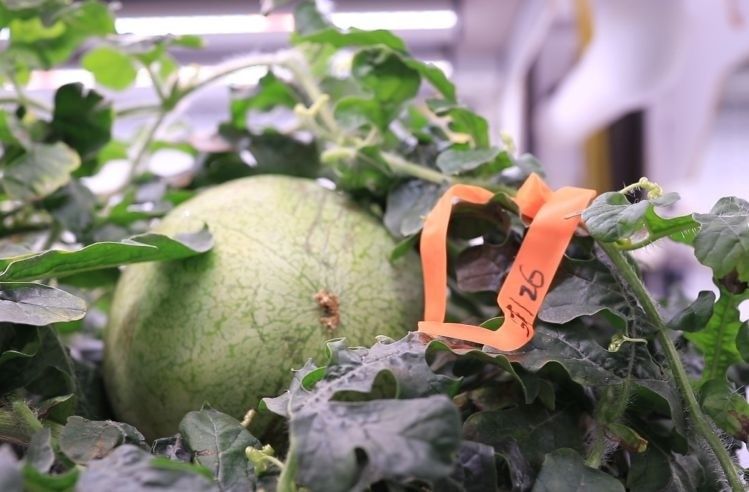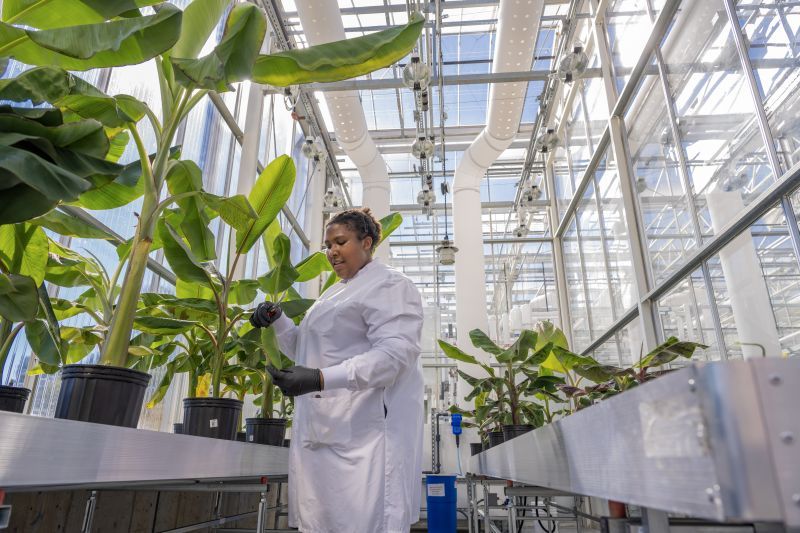North Carolina-based Elo Life Systems has closed a $24.5 million Series A round to accelerate the development of a natural high-intensity sweetener ‘inspired by monk fruit,’ and Cavendish bananas engineered to resist the devastating Fusarium wilt fungal disease threatening global banana production.
The financing was led by existing investors including AccelR8, Novo Holdings and DCVC Bio, and will enable Elo’s partner Dole to start field trials for the disease-resistant bananas in Honduras and advance work on the sweetener with a view to market entry in 2025.
Elo expects to open a Series B round later this year to further scale the sweetener and expand its R&D pipeline, says the company, which has just appointed ex-Tate & Lyle executive Joan Braca as an independent director.
Fusarium wilt: ‘The disease is steadily marching across banana growing regions’
Elo Life—which was spun out of biotech firm Precision Bio in December 2021—deploys a variety of plant breeding technologies including a propriety gene editing platform called ARCUS and is best known for its work with Dole to retool the DNA of the ubiquitous Cavendish banana variety to resist Fusarium wilt (TR4).
While some other startups including Tropic Biosciences are working on TR4-resistant varieties of Cavendish bananas, which account for 40% of global production, nothing has yet been commercialized, Elo CEO Todd Rands told AFN.
“This disease is steadily marching across growing regions… it destroyed all the Asian production and then the Middle East and now we’re seeing it in Peru, Venezuela, Colombia, the last holdouts in terms of production territories for Dole and other banana producers.”
Elo is sending its disease resistant banana varieties to Dole for field trials
He added: “We surveyed over 50 different genomes of different kinds of bananas and closely-related cousins and even other crops, looking for the kinds of proteins that could make resistance to this fungus a reality. From that, we were able to define about three dozen candidates that have been running through our throughput system.
“We have banana plants in our greenhouses that we’ve challenged with a huge dose of the fungus and we’re finding the resistance levels we need. Some are gene-edited, and some are GMO.
“We’re now sending those plants to Dole for field trials in Central America. Bananas take about nine months to grow out to maturity, so we’ll need another season, but we’ll have the answer [as to whether the plants both resist the fungus in the field and produce the required yield and quality] by the end of the season next year.”
‘We need to make sure that growers all over the world have access to it as this disease is devastating livelihoods’
Asked how the market feels about deploying genetic engineering to tackle Fusarium wilt, he noted that gene editing presented fewer regulatory barriers in many markets vs techniques that would be classified as GMO.
However, at this stage, there’s a willingness to at least entertain anything that actually works, given the extent of the problem, he claimed.
“We’ve seen crop species where GMOs are accepted as a stopgap to extinction, with papaya being the best example [whereby GM varieties resistant to papaya ringspot virus effectively saved the Hawaiian papaya industry].”
As for Cavendish bananas, he said, “You can do gene editing to enhance the expression [of a native gene that confers resistance to TR4] and get it to be ‘on’ in the right tissues. Or you can introduce another piece of DNA that is the promoter that runs the system that can turn on the gene.”
If the field trials are a success, he said, a licensing model would likely ensue. “Dole is our commercial partner so would be the one commercializing it and making sure that the solution is broadly available as there’s a recognition that this is an industry problem.
“We need to make sure that growers all over the world have access to this as this disease is devastating livelihoods.”

Elo is producing its high intensity sweetener in plant systems that are highly scalable for food production
Separately, Elo Life has developed a ‘monk fruit inspired’ plant-based sweetener that it claims is 200-300x sweeter than sucrose and could have a significant market impact given the limited options currently available to food & beverage formulators looking for high intensity natural sweeteners: stevia and monk fruit.
While monk fruit extracts are popular with food & beverage companies and consumers, they are expensive given that monk fruit only grows in a remote area of China, Rands told AFN.
Elo has found a way to take the pathway from the monk fruit that produces the sweet component mogroside V and put it into a watermelon variety that can grow “pretty much anywhere.”
This would take production closer to end markets and make the sweetener more broadly available.
Elo’s sweetener also has a superior sensory profile, claimed Rands, noting that monk fruit extracts on the market today typically provide mogroside V at about 55% purity, but also contain impurities and an assortment of other mogrosides that can negatively impact taste.
Elo’s product achieves a high level of mogroside V without all the other impurities and other mogrosides, leading to a cleaner taste profile.
“We’re inspired by nature, looking for the things that aren’t accessible or easy to scale for industrial food production. We find ways to put them into different plant systems that we can scale up and make something healthy and innovative more broadly available.”
Watermelon, tomatoes, sugar beet, sorghum: all potential expression systems
Elo is exploring everything from sorghum to sugar beets and tomatoes as cheaper expression systems for mogroside V, explained Rands.
“Where we differentiate ourselves is understanding the complex metabolic pathways to produce molecules that are sought-after but are also really hard to produce. We figure out how nature is making things with 10 enzymes in a ballet of synchrony and figure out how we can get that same pathway to go work in another crop that we can scale.”
In the case of sugar beet, for example, there is already an established infrastructure to process ingredients from the crop (sugar, molasses), which would not be negatively impacted by the addition of a process to extract mogroside V from the molasses stream, he said.
“We want to use an existing system where we don’t change the underlying value in the outputs. That’s one of the problems with monk fruit. They only grow it for the sweetener and don’t really use the rest.”
Labeling, regulation, scale up
Initially, Elo is contracting with US growers to scale up production of a watermelon variety that can produce mogroside V, said Rands.
Elo will have to go through the US Department of Agriculture’s process for growing a GM crop.
However, the sweetener itself—which is going through the Food and Drug Adminstration’s GRAS (Generally Recognized as Safe) process in the US—will not trigger bioengineered food labeling as it contains no detectible modified DNA.
Labeling for the sweetener is yet to be determined.

Elo Life Systems: ‘We’re not your typical startup’Elo Life Systems was spun out of Precision Bio in December 2021, says CEO Todd Rands, who joined as CEO in May 2022: “But we’re not your typical startup. We had the better part of a decade of investing and building things and have a sophisticated R&D engine. “From the outset, investors were excited to invest in something so well built. Their concern was Elo didn’t have the rest of the pieces of a mature company together, so we’ve been adding these as we go forward, building out the capabilities of the team, so we have 31 people now. “Initially the company was almost R&D as a service. We’ve since become far more product and consumer-oriented.” |





